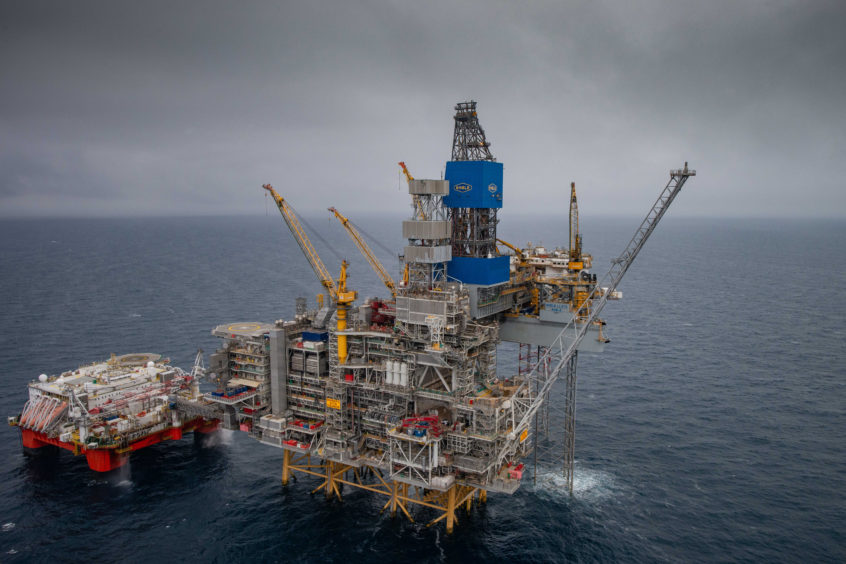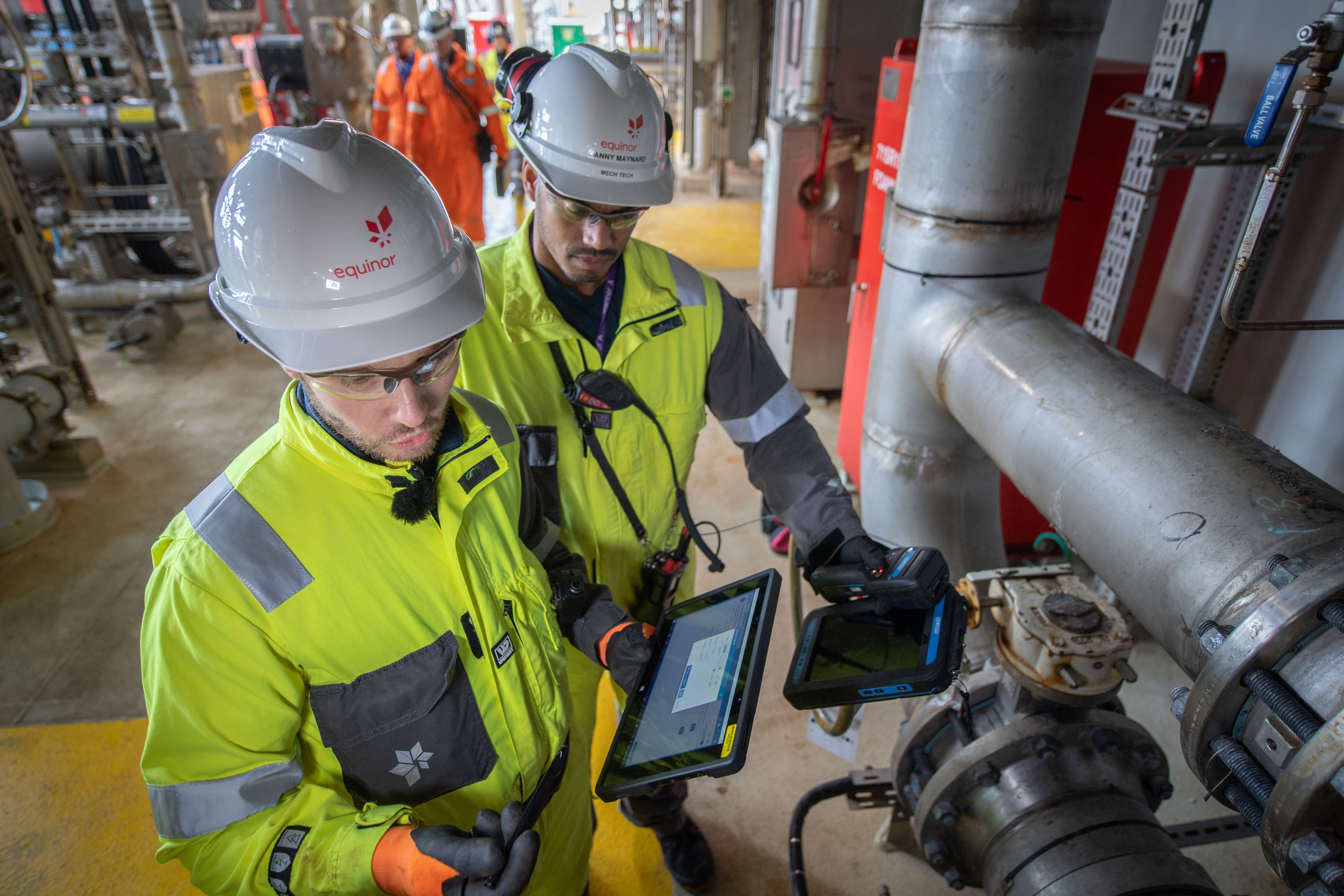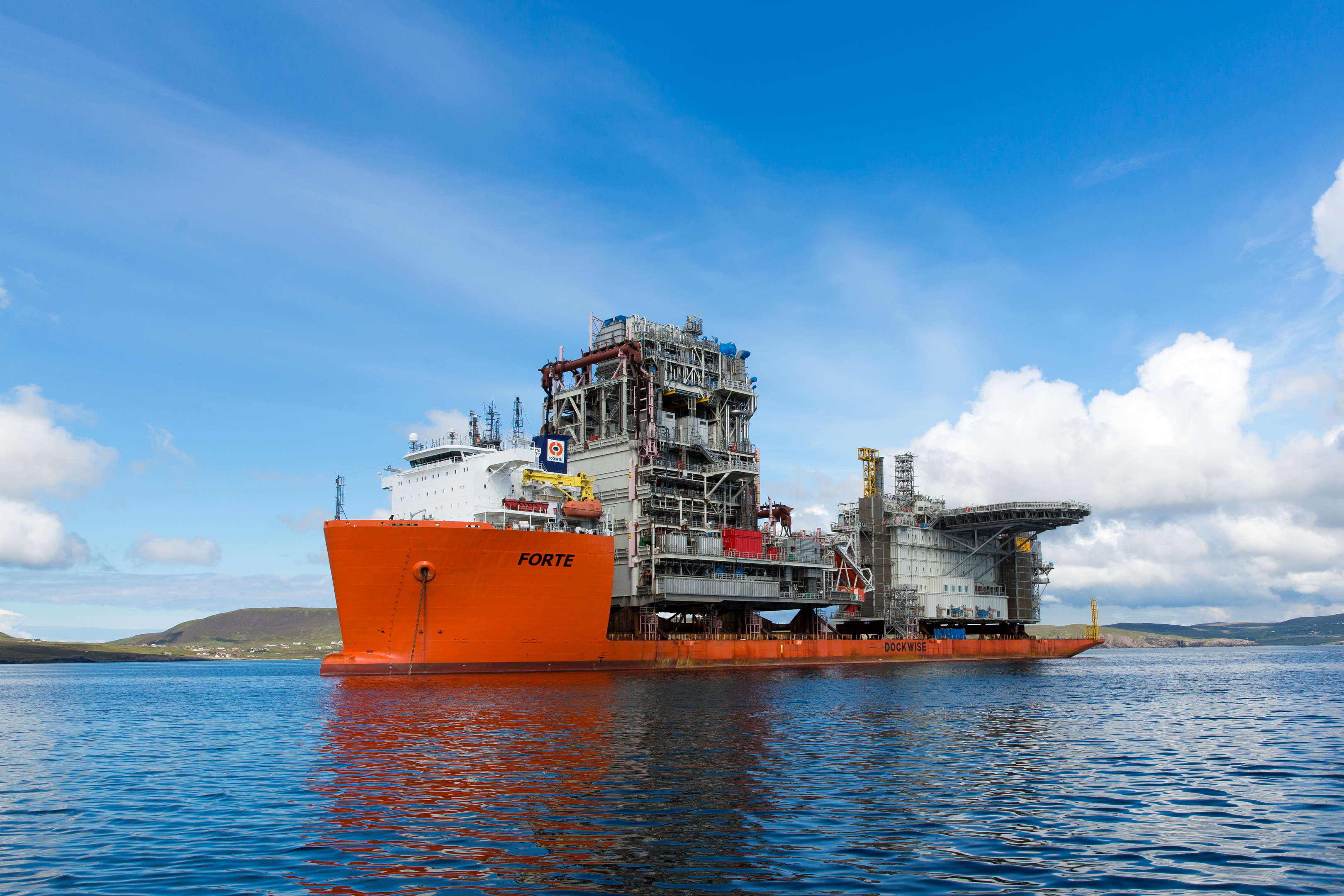
Equinor has hailed a major milestone for the North Sea oil and gas industry with first production from its giant Mariner field.
The flagship development 95 miles east of Shetland has started up after a £6.4billion investment, one of the biggest cash injections for the industry in the last decade.
With up to three billion barrels in place it is one of the UK’s largest oilfields and the project is expected to continue producing through to 2050.
The Norwegian energy giant said Mariner will support more than 700 long-term jobs while contracts worth more than £1billion have been awarded to UK suppliers since work began.
ALSO READ: Equinor looks to Rosebank and Bressay projects after Mariner
ALSO READ: Mariner is ‘natural fit’ for Equinor despite climate challenge
Around 1,500 people have been involved in the hook up and commissioning of the development since 2017, including 800 workers offshore at its peak, making Mariner one of the largest industrial projects in the UK in recent years.
Hedda Felin, Equinor’s senior vice president UK & Ireland offshore, said: “This start-up of the Mariner field is a huge, significant milestone for us.
“It is Equinor’s first UK operatorship. It is the largest investment in the UK Continental Shelf for the last 10-15 years and it is the second operatorship offshore that Equinor has outside of Norway so there is a lot of focus from all angles.”
Equinor expects to produce more than 300million barrels from the field over the next 30 years and is targeting peak production of up to 70,000 barrels of oil per day.
The heavy oilfield was first discovered in 1981 but it took decades for the industry to work out how to make it viable, with Equinor submitting a field development plan in 2012.
The complexity of the project required new technology and new seismic data to find the right solution.
Close to 100 wells are expected to be drilled over the next 12 to 14 years at the field’s two reservoirs.
It is also expected to be the last major infrastructure project in the North Sea until Shell’s Penguins field redevelopment begins in 2022.
Equinor’s vice president for UK and Ireland offshore operations, Trond Austrheim, said: “A lot of operators have tried to develop it.
“It goes without saying that if it was easy to do we would have developed it much earlier.”
Equinor has brought in latest digital technologies, automated drilling and the use of a digital copy of the platform to make it safer and more efficient.
It is hoped the use of the new innovations could bring an even greater level of oil recovery from the project.
Anders Opedal, executive vice president for technology, projects and drilling said: “By gathering and interpreting new seismic data we have improved our understanding of the reservoirs.
“This has resulted in fewer and better placed wells and increased resources since the project was sanctioned in 2012.
“With the significant volumes in place, we see clear potential to further increase the oil recovery from the Mariner field and will proactively seek opportunities to do so through the application of new technology, additional drilling and future tie back opportunities.”
Equinor is the operator of Mariner with a 65.11% stake. The partners are JX Nippon (20%), Siccar Point (8.89%) and ONE-Dyas (6%).
The three billion barrels of oil in place for the field represents a 50% increase on what was originally estimated, while the amount recoverable has increased 20% to 300million barrels.
Mike Tholen, upstream policy director at industry body Oil and Gas UK, praised the groundbreaking efforts of the operator to reach the first production milestone.
He said: “First oil from Mariner represents a significant achievement for Equinor and its pioneering development of the field, helping the company to become a major player in the UK sector of the North Sea with a long-lasting, positive impact on the region.
“As the largest offshore development in the UK for a decade, Mariner has utilised pioneering technology to bring on stream a field first discovered nearly 40 years ago. In doing so it has provided thousands of highly skilled jobs across the country during its development and will support many more in the years to come.”
TIMELINE
The Mariner field is one of the largest untapped resources in UK waters.
Discovered in 1981 by the now-defunct Unocal, it was left dormant for decades due to its complexity, with seven operators trying and failing to develop it.
Norway’s Statoil, now named Equinor, acquired the operatorship of Mariner in 2007 and began a search for new solutions.
A “game-changing” development came in 2012 with the acquisition of new seismic data which uncovered hidden information about Heimdal, the more challenging of the two reservoirs at Mariner, leading to the project being sanctioned in December that year.
Construction started in 2013 with the 22,000 tonne platform jacket being installed two years later.
In 2015, during construction of the platform topsides in South Korea, development costs increased by 10% from £5.8bn to £6.4bn, which was followed by hook up and commissioning of the modules getting underway in 2017.
Previously Equinor has given a £4.5bn figure for the Mariner investment but said the increase to £6.4bn accounts for changes in exchange rates.
First oil had been planned for 2018, however a series of problems delayed the start date.
In October last year, Equinor said “challenging weather conditions” had taken their toll on the hook-up and commissioning phase for the massive project.
Then in April first oil was delayed due to glitches with electrical equipment which needed to be corrected.
Mariner has also been the subject of a series of “unofficial” strikes from contractors which took place in April last year.
Equinor’s Hedda Felin, who is soon moving on to become the top advisor to the firm’s CEO, conceded there have been delays but they used the time wisely.
She said: “We have been working on the project for a long time. We have had some delays but then we’ve tried to use that time in an optimal way to be robust in order to have a safe start-up.
“There is a lot of cost control going on, it is important not to override that. We’re still within that ($7.7bn) budget and we’ve been trying to spend the time really wisely.
“It is a big milestone for a lot of people. Many companies have been involved so we’re very grateful with to all of them that we are now at this stage of starting-up.”
Recommended for you



